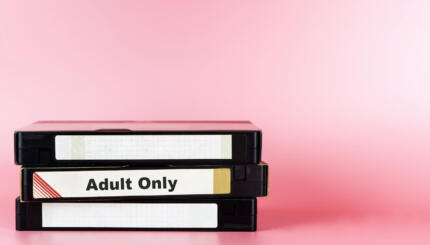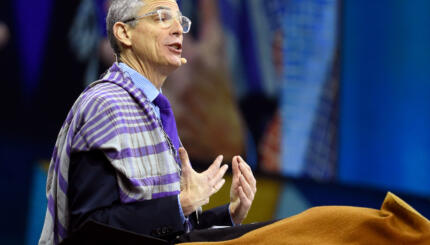A large red ribbon hangs between columns in the north portico of the White House for World AIDS Day, 30 November 2007
(Trigger warning: This post includes stories of suicide.)
I remember vividly the first time I heard the term “AIDS.” It was the Sally Jessy Raphael show right after I got home from school. I remember looking at the screen, seeing people who were broken, who were abused, who, essentially were being put on a pedestal of shame for the world to see. My mother called out from the kitchen, “Turn that trash off. Those faggots are getting what they deserve.”
But I knew I was not unlike them.
AIDS and HIV related deaths have topped 39 million since the pandemic started. There are more than 35 million people currently living with the virus today, with a bit over one million of those individuals living in the United States. And while the virus does not discriminate, individuals in the LGBTQ community feel the impacts far differently. We tend to not have adequate access to health care, face inherent stress from the discrimination and harassment that is institutional in our country which is proven to impart lesser health outcomes. From my prospective, the most harmful is the stigma that continues to follow this disease for our community.
I realize I don’t tell my story often enough, and I find this to be a personal failure as a member of this community and as a human being. I will not use real names or places because the story is still very raw and honestly, I don’t think those wounds will ever heal.
When I was 19, I was newly liberated: reborn even. I had come out to my Mom and Dad, I was living on my own at University, and had a supportive group of friends around me.
Dustin and Mark were two of those friends.
They had been together for the better part of a decade and were the queer big brothers I never had. I navigated my first two relationships with their help; crying on their shoulders more than I’d like to admit. But, for the first time in my life, I had role models. I had people I looked up to. I had a future.
It was October and the weather had started turning. Mark was constantly getting sick, although no one really thought much of it. I knew the week before my birthday, Mark had a doctor’s appointment. On the night of my birthday, as I was busy prepping for the birthday shenanigans, I missed a call from Mark.
That night, I missed an opportunity to save a life.
Mark was calling because hours before, he had found out he had tested positive for HIV. This man that I knew, who was in a committed relationship, who had taught me how to be strong in the face of adversity, how to be proud about my differences, hung himself in his apartment.
The hours that passed were all a blur. I was in complete shock and all I wanted were answers. Unfortunately, my only access to those answers was Dustin.
And on November 2nd, just one day later, Dustin put a gun to his head and pulled the trigger. Later, we would find out that Dustin had been cheating and introduced the virus into their relationship.
I’m writing this story to tell you that ten years ago, I lost two of my best friends—my blood—to this virus known as HIV. But the story is unlike the stories of my elders; who watched their loved ones whither away in hospital beds in the 80s and 90s.
My friends did not die because of the virus. My friends died because they knew they would be treated differently. They died because of fear. They died because we as a community have not stepped up to educate.
My friends died because of STIGMA.
I’m not a great Jew. Some love to remind me the last time I stepped into Temple was for a friend’s Bat Mitzvah, and that was quite a few years ago. But I am educated enough to know that in synagogue, we speak all passages of the Torah. We don’t side step the ones we feel uncomfortable speaking, especially if we’re hanging out in Leviticus.
LGBTQ Jews are in a unique situation: we stand steadfast for social justice and humanity and we know we cannot be silent, even in the face of what we feel is uncomfortable.
The importance of kavod hamet, respecting the dead, is taught in our tradition. Remembering, and respecting, the dead is commemorated by reciting the mourner’s Kaddish during prayers.
Today, I ask you to begin your advocacy with our Jewish values. Take a moment to include in your thoughts those we have lost. Stand with your congregation, and recite for those we have lost to the AIDS epidemic, those who have no one standing for them.
Hold in your prayers, and your memories, those who had no support, those who felt alone.
And, this World AIDS Day I challenge everyone reading this to call a friend, a neighbor, a coworker… anyone. Reach out to them and remind them that you’ll be there. If you’re feeling extra inspired, there are many different organizations that you can volunteer with—including your closest LGBTQ Community Center, as many of them work directly or indirectly with HIV/AIDS.
HIV/AIDS has taken so much from so many. Let us be kind. Let’s show the world that no one is alone in this fight.
Like this post?


